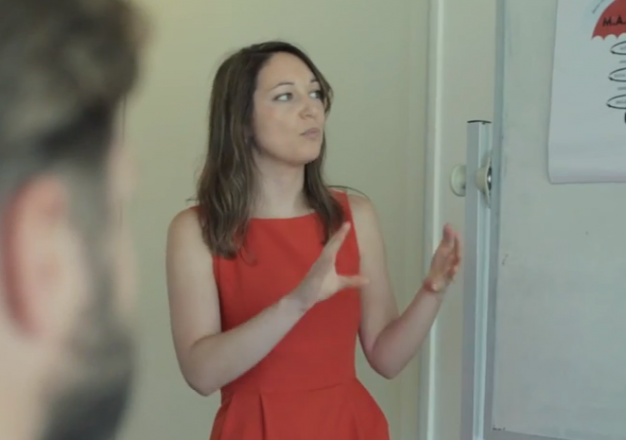Children’s Development of Skills – The Collective Responsibility

| Posted: | May 18, 2015 |
| Author: | Deberea Sherlock Educational and Developmental Psychologist |
Share this article:
The Need to Actively Promote Young Children’s Development of Skills
The Reality of Young Children’s Differing Competencies
The start of school is an important developmental milestone for children and their families. Whilst the majority of children who enter primary school demonstrate foundational competencies for school readiness, a notable percentage of children simply do not have the skills to cope with the expectations that a school system places upon them. Upon school entry children are required to communicate effectively; listen attentively, tolerate sitting still, and focus on learning despite ever-present distractions; control impulses and manage emotions; cooperate and get along well with others; navigate the realms of friendship; and cope with the physical demands of the school day. In particular, the skills of attention and self-control are essential as they provide the basis upon which a child’s ability to learn the academic skills of literacy and numeracy can be built. As fundamental competencies, attention and self-control skills enable children to acquire knowledge and to participate effectively in classroom and social learning.
Currently within Australia approximately 22 percent of five- and six-year-old children experience difficulties with one or more foundational competencies, demonstrating a reduced ability to cope with the learning and/or social-emotional challenges of the school day [1]. For these children, challenges arise from disorganised play, trouble waiting one’s turn, difficulty listening to others, problems following instructions or completing tasks, oppositional behaviours, or low threshold for disappointment or worry. These challenges have the potential to significantly interfere with academic learning and social relationships.
Why is it that some children cope admirably with the demands of school whilst others experience difficulty? To answer this question we need to consider the science of the developing child and the wondrous interplay among genetics, brain development, and social and learning experiences.
What the Science of Brain and Child Development Tells Us
Without question, young children need to develop learning and social-emotional skills in order to meet the many challenges they will face in the early years of school life. As critical as these skills are however, children are not born with the skills that enable them to control attention, manage emotions, or get along with others. Rather, children “are born with the potential to develop these capacities”, and this development is dependent upon their experiences during infancy, childhood and through into adolescence [2, p1].
The development of capacities starts with a genetic blueprint gifted to a child by his or her parents. The quality of a child’s early environments and relationships determines whether or not genetic potential is expressed in brain biology, which in turn ‘sets the stage’ for a child’s learning and social-emotional strengths and weaknesses. Importantly, brain development unfolds within a social context. Learning experiences are vitally important in shaping and modifying developmental outcomes for a child [2]. Skills such as tolerating sitting still, focusing attention, or exercising self-control to withstand disappointment or frustration are developed and honed through supported practice.
Critical periods for various aspects of brain development occur. The formative development of the brain regions supporting school readiness skills occurs during early childhood with brain development becoming more refined and efficient with subsequent development and learning experiences. The message is clear: An important window of opportunity for strong foundations for learning in later life is forged by the quality of a child’s earliest environments, relationships, and opportunities for appropriate learning experiences.
The Collective Responsibility of Parents, Teachers and Educational Policy Makers in Actively Promoting Development of Skills
Children in Early Years classrooms span the broad spectrum of school readiness capabilities. Most children are on-track developmentally. Some children present as developmentally immature. For these children, opportunities to learn skills and structured support to use skills are in place but they require a little more time and support than is typical for their age to acquire proficiency (e.g. the child who requires some initial one on one support to learn and apply the classroom rules). Children from impoverished environments who are denied opportunities to learn, or not encouraged to use and strengthen skills, fail to become proficient in their use of skills. Children with special needs, such as those associated with genetic or developmental conditions, experience significant learning and/or social-emotional difficulty and lack the capacity for proficiency by virtue of their disability. A further group of children present with clear skill weaknesses that cannot be explained in terms of developmental immaturity, disability or reduced opportunities to learn (e.g. children who experience considerable ongoing difficulty controlling impulses, focusing attention and resisting distractions).
Although maturation (growth unfolding over time with age) plays some role in the development of skills, skills do not develop automatically. Children need both opportunities to learn skills and structured support to use the skills they are developing in order for them to become proficient in performing skills on their own. Children who lag behind in their skills relative to children of the same age and grade find themselves at a disadvantage.
This disadvantage is not served well by misinformed understandings (e.g. behaviours that arise from genuine skill weakness being understood as intentional naughtiness or non-compliance), misplaced attributions of blame (e.g. ‘parents need to teach that child a thing or two’), or practices that miss important opportunities to teach skills (e.g. overemphasis on reactive, unproductive and time consuming punishments such as detentions and suspensions that don’t teach skills). Skill lags are to be supported by accurate understanding and focused teaching of skills.
Children who have attained competencies at the start of their school careers have a strong foundation for the subsequent development of increasingly complex skills throughout middle childhood and adolescence. One of society’s most important responsibilities is to provide children with the support they need to build the foundational skills for success in school and life. So let’s put aside misunderstandings and blame in acknowledging the collective responsibility of homes, child-care facilities, pre-schools, Early Years classrooms, and educational policy makers in supporting the early building blocks of school-readiness skills.
Supporting Children’s Development – The Essentials
Children thrive in nurturing, growth promoting environments. This involves sensitive and responsive parenting and care giving, an absence of sustained threat to a child, structure and predictability in home and school contexts, and explicit teaching of skills that includes coaching of specific skills in situations that cause difficulty for the child.
Our work with young children has taught us many things and the following points reflect some key understandings.
- Understand the challenge: First seek to understand a child’s behaviour. Challenging behaviours are a manifestation of skill weakness. No child embarks on the school journey with a desire to ‘get it wrong’, either academically or socially. Take the time to stop and reflect – a child’s behaviour speaks to you!
- Set clear and fair expectations: It is important to establish clear, fair and reasonable behavioural expectations but ensure children have the skills to meet those expectations.
- Invest in skill development: There is a real need to teach children skills that lead to constructive behaviours for school and for life (e.g. controlling impulses and managing strong emotion). Invest time in proactive, productive teaching of skills that will reduce problem behaviours over time. By way of example, deemphasize suspensions and detentions and heighten the focus on skill building in teaching the emotionally reactive child the skills of emotion control. Provide structured support to enable the child to use the skills s/he is developing. An investment in skill development is an investment in optimising development and building stronger relationships in the process.
- Collaborate: Open communication between parents and teachers helps both parties benefit from each other’s expertise and knowledge. Ask for and share information on problems that arise; share strengths, interests and effective strategies; and plan for ongoing discussion and problem solving. A common language for support of children’s skill development would go some way to promoting a working alliance between homes and schools.
- Advocate for proactive educational policy: There is a need for proactive policies that recognise the importance of early skill development in fostering school readiness competencies. Curriculum planning and design that ‘spot light’ skill development of foundational competencies represents active implementation of such policy.
If you are an allied health professional and would like to contribute to our Professional Pod, please contact us.
References
1. The Australian Government. (2012). A snapshot of early childhood development in Australia 2012: Australian Early Development Index (AEDI) National Report.
2. Center on the Developing Child at Harvard University. (2011). Building the brain’s “air traffic control” system: How early experiences shape the development of executive function, Working Paper No. 11. http://www. developingchild.harvard.edu/library/reports_and_working_papers/
About the MASTER Institute
MASTER provides services, resources and guidance for parents, teachers and allied health professionals in supporting the social and emotional wellbeing of young children. Dr Deberea Sherlock and Aisling Mulvihill founded the MASTER Institute in 2012. From the combined professions of educational and developmental psychology and speech-language pathology, they bring to MASTER over 20 years of collective specialised experience in the area of children’s social and emotional development, and a deep understanding of children and the challenges they face. Their work is strongly guided by a desire to engage children through creative learning and the wider value of working collaboratively with families and schools.





